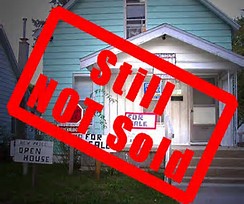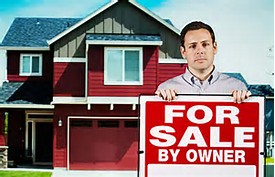Mark Twain famously said, “buy land, they’re not making it anymore.” This sentiment has been the driving force behind people who successfully flip a home for a profit. While it can be a good way to earn money on an investment, there are also some items to consider to avoid losing money.
Getting the right property, correctly estimating repair costs and sales price, and lining up the financing for the purchase and renovation are all vital to making sure this kind of investment is profitable.
Finding the right fixer upper
For people that want to flip a home, it is very important to understand that buying a home at a price which will allow a profit is the most important factor. Paying too much to acquire the property is a common error made by new investors.
Homes that are typically ripe for flipping are well priced, structurally sound homes in desirable locations that need modern updates.
Location, sought after features (such as number of bedrooms and bathrooms) and price point should be your top priorities when searching for a property within your budget.
Do the math
Buyers need to look at 3 things; initial purchase price, renovation, or repair costs, expected sales price.
It goes without saying; the purchase price needs to be as low as possible. Talk to your real estate agent and discuss if the home is aggressively priced for the current condition or if the owners may be willing to negotiate a lower price than the advertised sale amount. If the current owners are simply holding on to the property in hopes of getting full price, it may be a waste of time to try and get a better price.
Realistically Estimating the Costs of Purchasing a Fixer-Upper Is Important
The repair and renovation costs can be tricky. A buyer must make sure that the offer includes a thorough home inspection prior to closing on the deal. This will allow the buyer the chance to hire an inspector and determine exactly what is wrong with the home and get written estimates on the repairs. Overestimating the repairs and renovations can also insure that the deal will still be profitable.
Finally, the expected sales price needs to be realistic. In order to get an idea of a good price, your experienced real estate agent who has worked extensively in the area will give you an estimate of an expected sale price based on current market conditions and recent sales prices of similar homes in the area with an expected sales price after your renovation has been completed.
Getting the money for your fixer upper
Acquiring the money needed to buy the home and pay for the repairs can be challenging. BEFORE you start your search discuss your plans to flip a home with your mortgage specialist to ensure that you can not only purchase the property but can pay for the necessary repairs.
Purchase price plus identified renovation costs (repairs may include replacing the cooling & heating system, replacing the roof and gutters, adding new windows and doors, repairing, or replacing the flooring, light fixtures, or upgrading the kitchen or bathrooms)
Be sure not to "over renovate" for the location, size and price range of the home. The quality of your finishings should stay in line with the price range you will be selling in. If it is an entry level home, you may want to install laminate counter tops instead of granite and vinyl flooring instead of hardwood. HIgh end finishing when it isn't required is one of the fastest wayto blow your renovation budget.
The estimated value of the home after repair
Summing up how to purchase and renovate a fixer upper at a profit
With a realistic approach, and good financing, buying a home to flip it is a viable way to make profits in real estate. It takes good planning and working with a qualified mortgage lender, experienced contractors and a knowledgeable real estate agent that can provide the right guidance for an investor.








